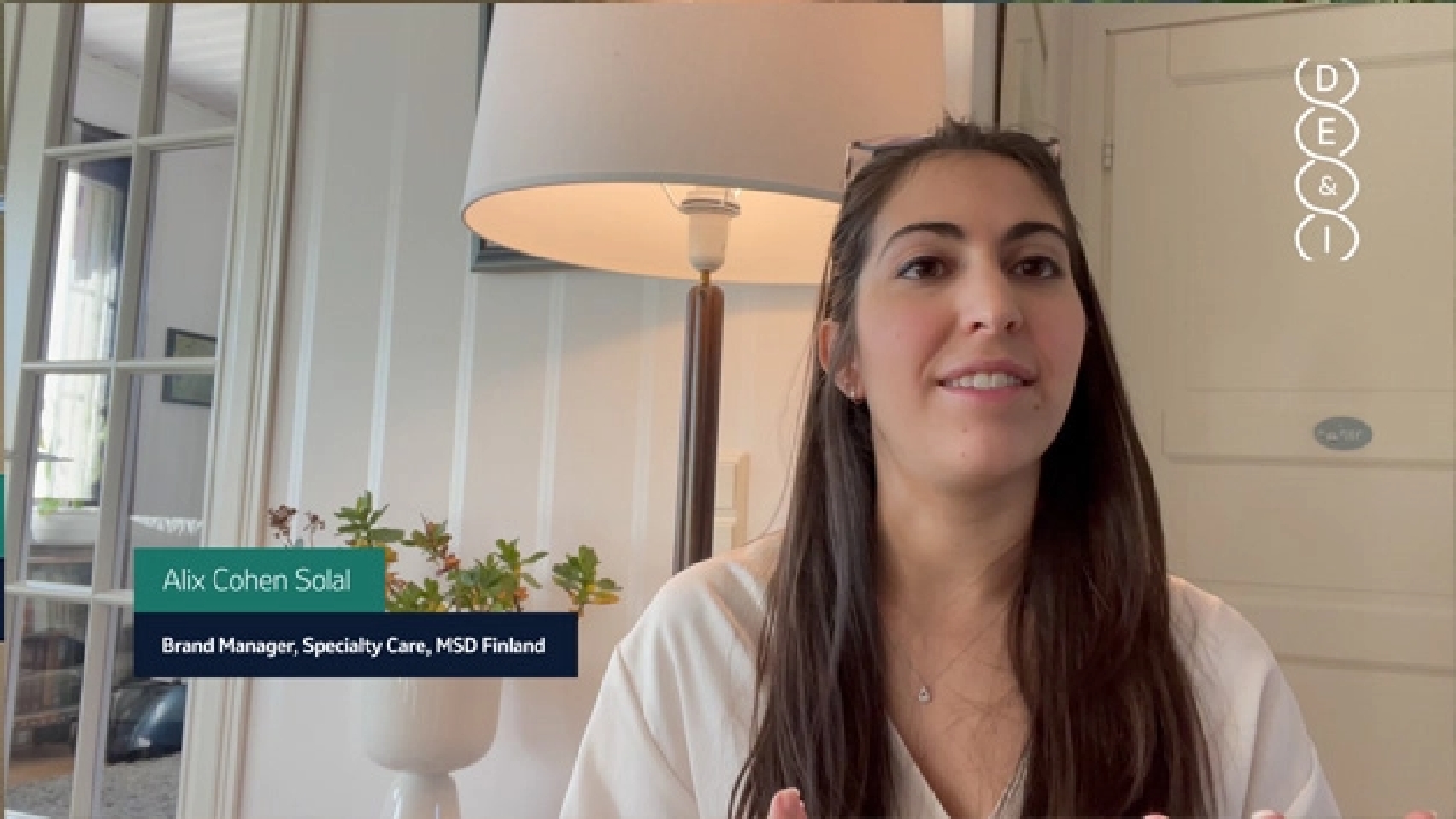Psychological safety is essential in creating a trusting environment
Helmikuu 2023

Alix Cohen Solal, Brand Manager, Specialty Care, MSD Finland
I believe that psychological safety is important for every type of relationship: family, friends, and relationships at work. When a child is not able to share problems with parents or interact normally with friends without being mocked and bullied, there is a lack of psychological safety leading to low self-esteem and confidence. Trusting people and being trusted and honest—you say what you do and do what you say—is the key to building a healthy and fruitful relationship.
Psychological safety is an important aspect of our work community, it is a key component of diversity and inclusion efforts. Working with different people means working with diverse opinions, experiences, and knowledge. This cognitive diversity improves the team’s engagement: we feel that our insights are appreciated, and we feel accepted for who we are. It creates a feeling of belonging, trust, and respect as well as purpose: we see the value we bring to the team and the work.
“We see the value we bring to the team and the work.”
I believe that psychological safety is essential in creating a trusting environment. Everyone needs to feel that they will not be punished or humiliated for speaking up with ideas, questions, concerns, or mistakes. I believe that each team member should feel empowered to share his/her perspectives and especially when their opinions differ from the rest of the group. There is no such thing as a stupid question: any question you might have is valid and worth asking, no matter how simple it may seem to you or other people.
Creating psychological safety is accomplished quite naturally and routinely by everyone in our workplace. When we arrive in the morning and meet our colleagues, “How are you?” is the most frequent question that’s asked in a systematic fashion. Checking on our teammates demonstrates our concern and interest in them as people: we show that we truly care, and we feel that we are appreciated as our whole selves, not just as a work service.
“Creating psychological safety is accomplished quite naturally and routinely by everyone in our workplace.”
During meetings, interacting with positive dialogue and discussion is key. We use encouraging language to inspire honest conversation: each person feels free to speak up without fear of mistakes or reprisals. Brainstorming is an important aspect of our work, and we make sure that each of us can share his/her viewpoint and consideration: all ideas are welcome!
Lastly, we celebrate failures as learnings. We are regularly asked about what we have done that didn’t work out as expected and what we’ve learnt from it. We are not punished or humiliated; on the contrary, we are encouraged to test and learn to do better. This is accomplished by taking smart risks and sometimes making mistakes so that we learn and grow!
The Values and Ways of Working of MSD are at the foundations of building a psychologically safe environment. Our teams embrace diversity and inclusion; we are pushed to experiment, learn, and adapt as well as speak up and be open-minded in our daily work.
Thanks to our frequent town halls, new or updated information is shared: being clear about what has changed and why gives us time to process the change, adjust, and be comfortable with it.
“The use of the Pulse Survey helped MSD in measuring the psychological safety in the organization and focusing on the main areas to improve.”
Moreover, MSD provides multiple ways to share our thoughts: we are building a feedback culture where employees can give and receive respectful feedback. The use of the Pulse Survey helped MSD in measuring the psychological safety in the organization and focusing on the main areas to improve.
I remember well a situation where I experienced psychological safety at work: I got a terrible migraine and was not able to fulfil my duties, so my manager just told me to go home and rest to get better. I was feeling upset about not being able to deliver what I was supposed to that day. Seeing that my well-being was a priority reassured me.
Watch the video

